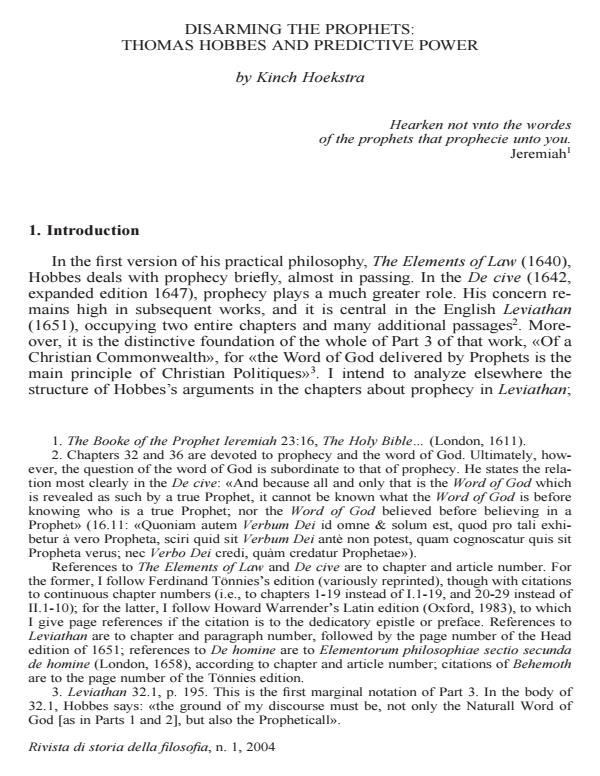Disarming the prophets. Thomas Hobbes and predictive power
Journal title RIVISTA DI STORIA DELLA FILOSOFIA
Author/s kinch Hoekstra
Publishing Year 2004 Issue 2004/1
Language English Pages 57 P. File size 1343 KB
DOI
DOI is like a bar code for intellectual property: to have more infomation
click here
Below, you can see the article first page
If you want to buy this article in PDF format, you can do it, following the instructions to buy download credits

FrancoAngeli is member of Publishers International Linking Association, Inc (PILA), a not-for-profit association which run the CrossRef service enabling links to and from online scholarly content.
<i> Disarming the Prophets </i> (by Kinch Hoekstra) - ABSTRACT: Kinch Hoekstra takes up another question related to supposed revelatory experience, namely, the claim to prophesy, and, more particularly, why Hobbes’s concern with it grows during the decade after 1640, what varieties of it preoccupy him and what his responses are to them. Of central importance for Hobbes was his contemporaries’ concern with biblical prophecy, both radical and royalist. Trying to pluck its political sting, Hobbes argues that apocalyptic prophecy is a form of madness but more broadly seeks to place the interpretation of scripture solidly within the purview of the sovereign. By blunting the belief in prophecy, Hobbes disarms the prophet.
kinch Hoekstra, Disarming the prophets. Thomas Hobbes and predictive power in "RIVISTA DI STORIA DELLA FILOSOFIA" 1/2004, pp , DOI: